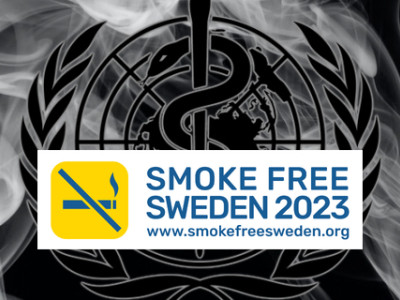The study’s authors concluded that their work showed increased risk of suicide attempts, “consistently reported for adolescents and adults who smoke cigarettes, extends to a range of emerging tobacco products and manifests among elementary school–aged children.”
They say further investigations are “imperative to clarify the underlying mechanisms and to implement effective preventive policies for children.”
Jonathan Foulds PhD told his Twitter followers: “If I had a $ for every study finding that 2 variables are ‘associated’ with each other, then stating that the study could not say anything about causality, then implying (wrongly) that one of the things caused the other, I'd be a millionaire and much less frustrated reading them.”
Out of the experts who passed comment on the paper, Professor Kevin McConway, Emeritus Professor of Applied Statistics at The Open University, was the most loquacious.
He said: “Though this study seems to have been carried out generally competently in statistical terms, there are issues about the kind and amount of data that the researchers could collect that make its findings awkward to interpret. My own opinion is that it really doesn’t advance knowledge about tobacco use and suicidal behaviour, in children who were mostly not even old enough yet to be teenagers, to a helpful extent.
“This is an observational study. The researchers didn’t make any of the children use tobacco, or not use tobacco. Instead they asked them and their parents or carers questions about what they had done, in terms of tobacco use, suicidal thoughts or actions, and a great number of other things, and they made various measurements. They did indeed find that a bigger percentage of the children, who had used tobacco products, reported suicide attempts, than the corresponding percentage of children who had not used tobacco.
“But that doesn’t mean that the tobacco use necessarily caused this increased rate of suicide attempts.
“Even if it did turn out that it was tobacco use that caused the increase in the risk of suicide attempts – and that’s a big if – and even if we could eliminate all tobacco use in children of this age, that wouldn’t have done anything for the children who didn’t ever use tobacco but nevertheless carried out a suicide attempt. And there were probably over 300 of them.”
Dr Sarah Jackson, Principal Research Fellow, UCL Tobacco and Alcohol Research Group, University College London, said: “An observational study like this tells us nothing about cause and effect. The authors conclude that ‘smoking tobacco products may be a modifiable risk factor for suicide’, which implies that one thing causes the other. But as they state clearly in the paper, it’s impossible to know whether the association was causal. Do tobacco products lead children to feel suicidal, or are children who feel suicidal more prone to use tobacco products, or are suicidality and use of tobacco products caused by another factor? This paper simply cannot tell us.”
She added: “One thing we do already know is that smoking rates among adults with depression are substantially higher than among adults without depression.
“While the analyses accounted for some factors that might make a child more likely to try tobacco products and to feel suicidal (e.g., socioeconomic disadvantage and parental history of substance use and mental health problems), there are others that were not measured that could also explain this association (e.g. adverse childhood events). In addition, is not clear from the paper which tobacco products children had used (e.g., cigarettes vs. e-cigarettes), how often they had been used, and whether those things affected the association with suicidality.”
Professor Marcus Munafo, Professor of Biological Psychology, University of Bristol, summed it up: “In the absence of negative control outcomes like this, the results of this study should not be taken as strong evidence that vaping causes suicide.”
References:
- ‘Use of Tobacco Products and Suicide Attempts Among Elementary School–Aged Children’ by Phil H. Lee et al - https://jamanetwork.com/journals/jamanetworkopen/fullarticle/2815463
Photo Credit:
Photo by David McCumskay on Unsplash (Resized and cropped)
Dave Cross
Journalist at POTVDave is a freelance writer; with articles on music, motorbikes, football, pop-science, vaping and tobacco harm reduction in Sounds, Melody Maker, UBG, AWoL, Bike, When Saturday Comes, Vape News Magazine, and syndicated across the Johnston Press group. He was published in an anthology of “Greatest Football Writing”, but still believes this was a mistake. Dave contributes sketches to comedy shows and used to co-host a radio sketch show. He’s worked with numerous vape companies to develop content for their websites.
Join the discussion
Harm Reduction For The Rich
The United Kingdom risks becoming a harm reduction country only for the wealthy, according to Michael Landl of the World Vapers’ Alliance
CAPHRA Highlights Tobacco Control Flaws
The Coalition of Asia Pacific Tobacco Harm Reduction Advocates highlights the flaws in tobacco control which has led to the rise of black market in Australia
A Missed Opportunity at COP10
The Smoke Free Sweden movement says that COP10 was a missed opportunity to save millions of lives
COP10: Promote Tobacco Harm Reduction
Experts with Smoke Free Sweden are emphasising the urgent need for a Tobacco Harm Reduction approach at COP10












